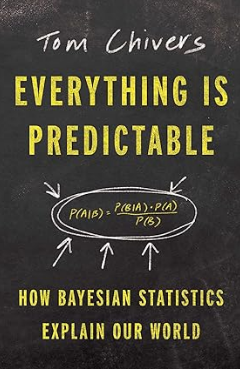Here’s the follow-up to the first installment of our year-end review of Book Bits columns published in 2024. Happy reading!
 ● Shocks, Crises, and False Alarms: How to Assess True Macroeconomic Risk
● Shocks, Crises, and False Alarms: How to Assess True Macroeconomic Risk
Philipp Carlsson-Szlezak and Paul Swartz
Excerpt via Harvard Business Review
In 2022, when U.S. interest rates climbed, a cascade of emerging-market defaults were predicted—but they didn’t materialize. Also in 2022, and again in 2023, public discourse cast an imminent recession as “inevitable.” Instead a resilient U.S. economy not only defied the doomsayers but delivered strong growth.
For executives and investors such whiplash comes with two types of costs: financial and organizational. Consider the financial cost to automakers that reduced their semiconductor orders in 2020 because they misread the Covid-19 recession as a protracted economic depression. That meant they missed out on sales during the roaring recovery. And leaders can lose the trust of their organizations if they overreact to false alarms with abrupt reversals in strategy, operations, and communications. Clearly, getting the macro call right really matters.
 ● The Art of Uncertainty: How to Navigate Chance, Ignorance, Risk and Luck
● The Art of Uncertainty: How to Navigate Chance, Ignorance, Risk and Luck
David Spiegelhalter
Review via The Economist
… books that successfully communicate how mathematicians think, but are aimed at those not already in the tribe, are both valuable and rare. Over the decades many eager students have devoured Thomas Körner’s “The Pleasures of Counting” (1996) and Sir Timothy Gowers’s “Mathematics: A Very Short Introduction” (2002). Now Sir David Spiegelhalter, emeritus professor of statistics at the University of Cambridge, has added to the genre with “The Art of Uncertainty”. His new book will appeal to many more than just aspiring mathematicians, for its topic is universal: how to analyse chance, ignorance and risk.
 ● Growth: A History And A Reckoning
● Growth: A History And A Reckoning
Daniel Susskind
Review via Financial Times
The book starts with a canter through centuries of muddled thinking. Thomas Malthus and his contemporaries thought that growth was inherently unsustainable, as a growing population would eventually run out of resources. Later, development economists at the World Bank sustained a “‘fetish’ for investment”, relying on models that saw physical capital — stuff that people could touch — as key for generating development.
Most recently, there are “degrowthers”, who include the likes of activist Greta Thunberg and anthropologist Jason Hickel. Although their views are (too) often vaguely defined, the basic fear is that more economic growth will gobble up the Earth’s resources, and so policymakers should seek less of it to prevent environmental catastrophe.
 ● Everything Is Predictable: How Bayesian Statistics Explain Our World
● Everything Is Predictable: How Bayesian Statistics Explain Our World
Tom Chivers
Review via The Wall Street Journal
First articulated in the 18th century by a hobbyist-mathematician seeking to reason backward from effects to cause, Bayes’ theorem spent the better part of two centuries struggling for recognition and respect. Yet today, argues Tom Chivers in “Everything Is Predictable,” it can be seen as “perhaps the most important single equation in history.” It drives the logic of spam filters, artificial intelligence and possibly our own brains. It may soon help us work through tricky social problems like vaccine hesitancy. Once you start to look for it, Mr. Chivers says, you start to see Bayes’ theorem everywhere.
At its core, the theorem provides a quantitative method for getting incrementally wiser by continuously updating what you think you know—your prior beliefs, which initially might be subjective—with new information. Your refined belief becomes the new prior, and the process repeats.
 ● Feeding the Machine: The Hidden Human Labor Powering A.I.
● Feeding the Machine: The Hidden Human Labor Powering A.I.
Callum Cant, et al.
Review via The Economist
The darker side of the shiny AI era is the subject of “Feeding the Machine” by three academics at the University of Essex and Oxford University. Automation is born of exploitation, they contend. Today’s glowing data centres that run AI systems are akin to the soot-covered factories of the 19th century. Behind the algorithms are humans—yes, lavishly paid engineers, but also an army of workers who make the systems hum, from those who review the underlying data that are fed into the software to those who check its answers.
Please note that the links to books above are affiliate links with Amazon.com and James Picerno (a.k.a. The Capital Spectator) earns money if you buy one of the titles listed. Also note that you will not pay extra for a book even though it generates revenue for The Capital Spectator. By purchasing books through this site, you provide support for The Capital Spectator’s free content. Thank you!